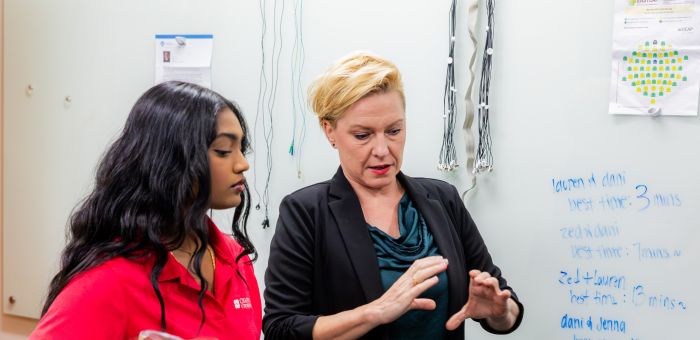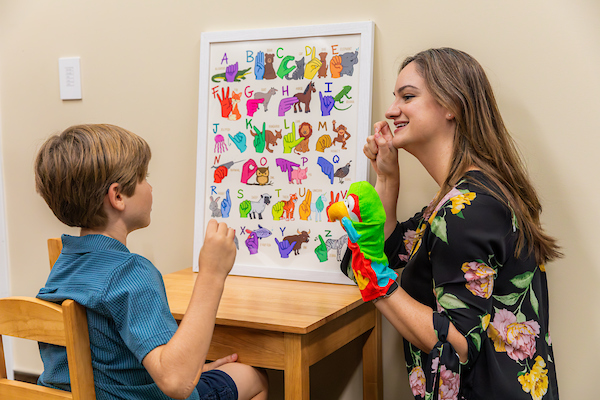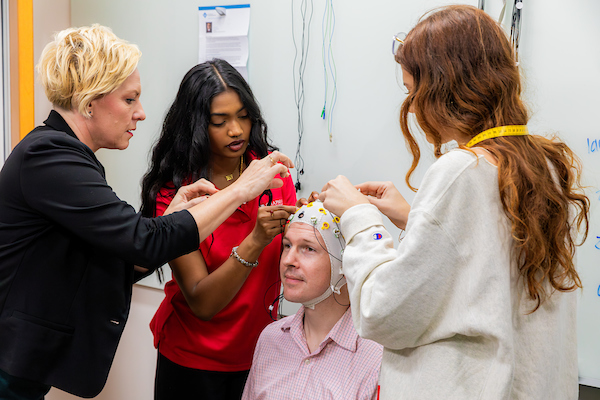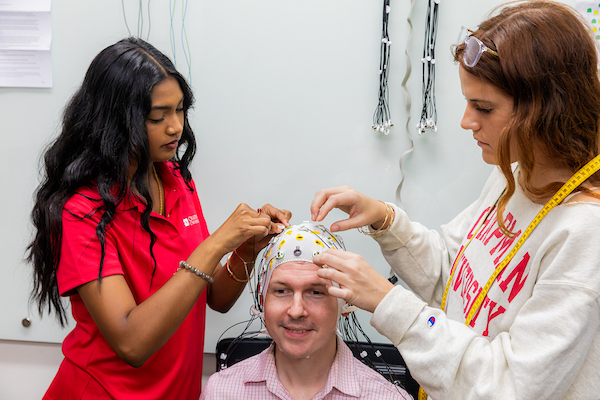
»Engineering therapies through research
Early Language and Cognitive Development Lab
Mary K. Fagan is an assistant professor in Communication Sciences and Disorders. She received her Ph.D. in Developmental Psychology from the University of Missouri and was an NIH postdoctoral fellow at Indiana University, School of Medicine. She has a master’s degree in Speech-Language Pathology. Dr. Fagan’s research centers broadly on infant development and investigates patterns and predictors in speech and language development, mother-infant interactions, and early exploration. In addition, she is interested in cognitive and pre-linguistic development in infants with hearing loss and in identifying interventions that promote word learning and vocabulary development in infants with profound hearing loss before and after they receive cochlear implants.
Dr. Mary Fagan
Location: Harry and Diane Rinker Health Science Campus
Communication and Language Acquisition Lab

Dr. Brittany Lee's lab studies communication and language acquisition, with a focus
on improving speech-language pathology services to support language and literacy development among Deaf
and Hard-of-Hearing children. We use cognitive and translational science to support
a mission of language and literacy for all.
Dr. Brittany Lee
Location: Harry and Diane Rinker Health Science Campus
Cognition, Language and Plasticity Lab

Dr. Zed Sehyr's research focuses on exploring the neuroplasticity of pathways dedicated
to language and visual processing as a consequence of diverse visual and sensory experiences.
Language, whether spoken or signed, is a focal point of our investigations. They place
a particular emphasis on the study of sign languages and their users, recognizing
their pivotal role in advancing our understanding of universal aspects of human language
and communication.
Dr. Sehyr's research sheds light on the intricate networks responsible for language
processing. Moreover, these findings have the potential to assist the development
of more intelligent machines that can interact with humans in a more human-like manner.
Finally, Dr. Sehyr's research findings also hold promise for clinical practice, as
they can inform strategies for language recovery following brain injuries.
Dr. Zed Sehyr
Location: Harry and Diane Rinker Health Science Campus
Aphasia & Neurolinguistics Lab (CHANL)
Dr. Dirk den Ouden
Location: Harry and Diane Rinker Health Science Campus
